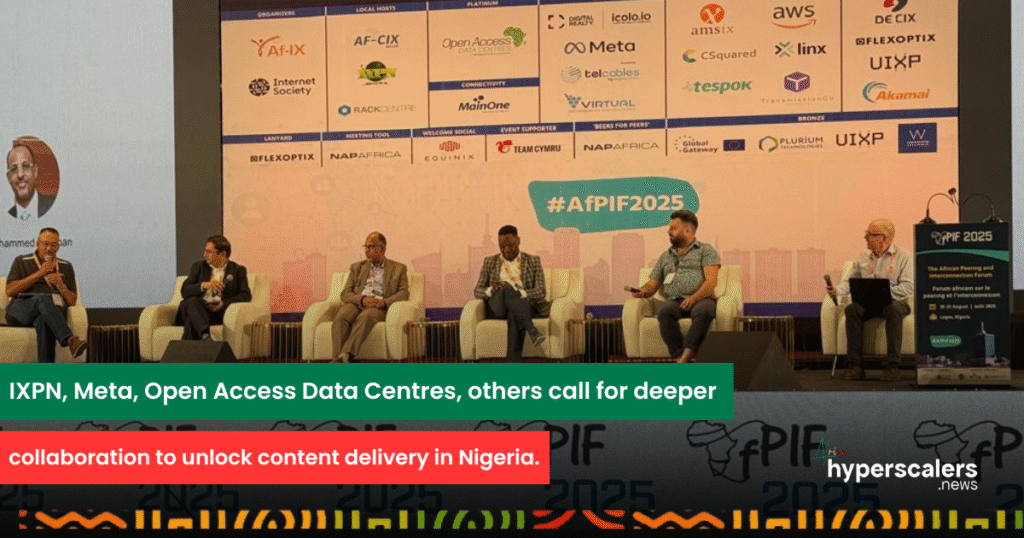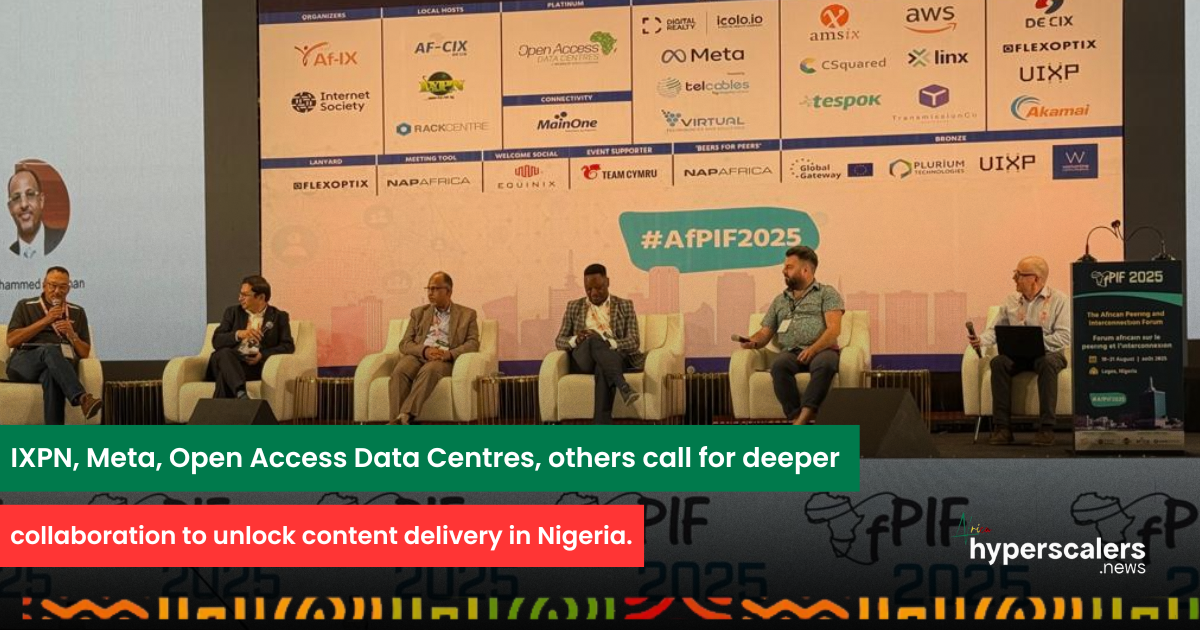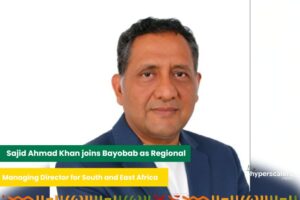Nigeria’s content delivery landscape is at a crossroads. At the Africa Peering and Interconnection Forum (AfPIF) hosted in Lagos, Nigeria, leaders from the Internet Exchange Point of Nigeria (IXPN), Meta, Open Access Data Centres, Airtel Africa, Digital Realty, and Telegeography took the stage to examine the state of content infrastructure in Nigeria and chart a collaborative path forward.
The session, titled “Content at the Edge: Unlocking Faster and More Reliable Experiences”, followed a keynote presentation by Meta’s Michelle Opiyo on the company’s evolving edge infrastructure across Africa. The panel included Dr. Ayotunde Coker, Chief Executive Officer (CEO), Open Access Data Centres. Atul Palliwal, Head – IP Core and Enterprise Solutions, Airtel Africa; Muhammed Rudman, CEO, Internet Exchange Point of Nigeria (IXPN); Ikechukwu Nnamani, Country Managing Director, Digital Realty; Ben Ryall, Edge Strategy Manager, Meta, and Patrick Christian, Senior Research Manager, TeleGeography, who moderated the panel. Together, they tackled the challenges of deploying content delivery networks (CDNs) in Nigeria – and the vast untapped opportunities.
Meta’s Ryall emphasized Nigeria’s demographics as a massive opportunity: the country is Africa’s most populous nation, with a youthful population hungry for content. “There’s a clear distinction between enterprise users and young, content-driven consumers,” he said. “That split creates opportunity for local CDNs and tailored delivery strategies.”
Muhammed Rudman, CEO of the Internet Exchange Point of Nigeria (IXPN), noted that while global CDNs like Meta and Google are present, others like Netflix have been slow to scale due to infrastructure gaps and pricing mismatches. “We spoke to Netflix in 2007, and they didn’t see the ROI. Today, they’ve landed traffic in Lagos due to subsea cables, but costs are still too high elsewhere,” Rudman said. Dr. Ayotunde Coker urged players to consider sachet pricing models – weekly or daily access packages that reflect Africa’s informal economy.
Panelists highlighted Nigeria’s high cost of bandwidth outside Lagos. While transit in the city can be as low as $1 per Mbps, rates in other parts of the country still hover around $30. “The infrastructure is here, but we need broader distribution,” said Ikechukwu Nnamani of Digital Realty. “It’s a Catch-22: the market won’t mature until investment comes – but that investment only comes if the ecosystem is already in place.”
Ayotunde Coker added that colocation providers are evolving beyond just power and space. “We’re building ecosystems where content creators, CDNs, and carriers can meet. Our Kinshasa facility, for instance, was designed to enable peering with multiple IXPs from day one.”

Still, last-mile challenges persist. Nigeria experienced 13,000 fiber cuts in just 18 months, according to data shared during the session. As fiber footprint expands – from MTN’s 25,000km to the government’s planned 90,000km – the risk of disruption multiplies. Rudman also stressed that solving content latency goes beyond deploying in Lagos. “You have to go inward,” he said. “If your game downloads are only cached in Lagos, users in Kano still suffer.”
Meta, which recently built its first point of presence (PoP) in Lagos, is now constructing a second in Port Harcourt to serve the south-south region. “Technically, we can localize all content,” the panelists agreed. “But the real question is: is it practical to do so everywhere? Collaboration is key.”
IXPN, he added, is proactively working to expand interconnection beyond Lagos and lower barriers for CDNs to deploy deeper. “We’re ready to be wherever the networks are,” Rudman said. “But MNOs must start peering outside Lagos too.”
The panel closed on a unified note: sustainable growth in content delivery will require more than infrastructure – it needs coordinated investment, ecosystem-wide collaboration, and regulatory support. “Infrastructure is coming,” Nnamani concluded. “Hyperscalers and content platforms – now’s the time to bring your content closer to the users.”
The 15th edition of the Africa Peering and Interconnection Forum was held August 19 – 21, and was hosted by the Internet Exchange Point of Nigeria, Rack Centre, and Af-CIX (De-CIX).
Ready to dive deeper into the hyperscale revolution impacting Africa?
READ MORE HERE: www.africa.hyperscalers.news
Contact Us:
Email: projects@hyperscalers.news
Phone: +2348109003350
Follow us on Social Media: Instagram, Facebook, LinkedIn, x





